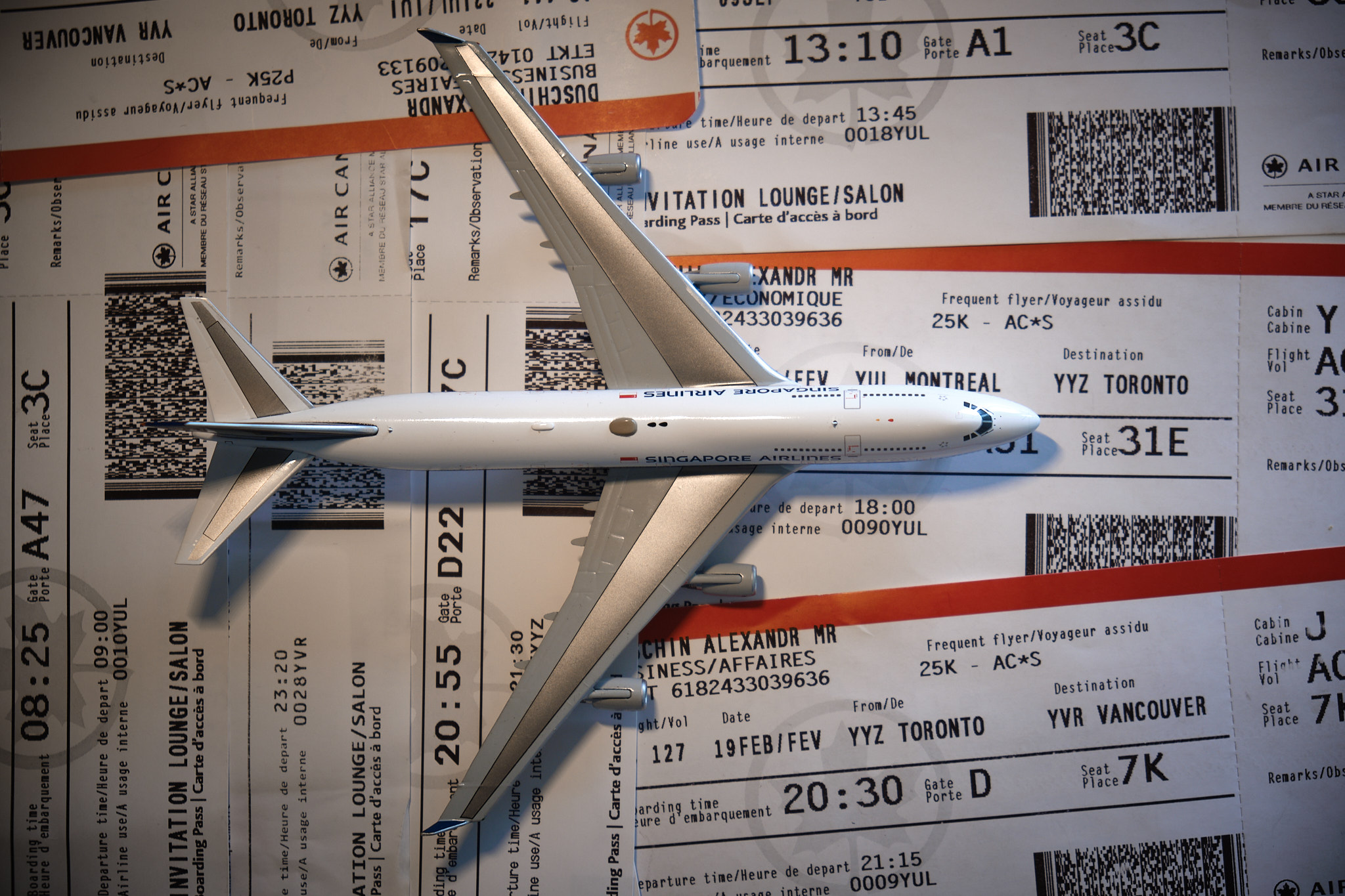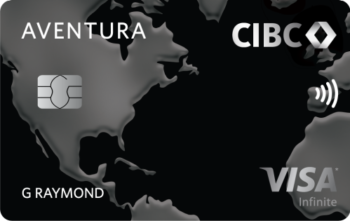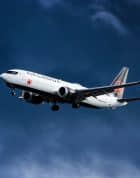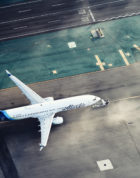Since Aeroplan introduced dynamic pricing on Air Canada, booking last-minute domestic trips with points became prohibitively expensive.
A one-way economy ticket between Montreal and Vancouver could go for about 40,000 points a few days before departure. Lie-flat business class seats retail for anywhere between 50,000 and well north of 100,000 points, depending on the time of day and type of aircraft. In comparison, 90,000 points for Lufthansa First Class between Toronto and Frankfurt seems almost too cheap.
These inconvenient particularities of the new Aeroplan prompted me to embark on a journey across Star Alliance loyalty programs to find a good deal for my frequent commutes to the West Coast.
In particular, the Singapore Airlines KrisFlyer award chart caught my attention because of the price point of 46,000 KrisFlyer miles for a round-trip business class flight within North America, which is even cheaper than the 50,000 points under the old Aeroplan.
The Sweet Spot
The Singapore Airlines KrisFlyer partner award chart reads as follows:
- 25,000 KrisFlyer miles for an economy class round-trip within North America;
- 46,000 KrisFlyer miles for a ticket in business class / US domestic first class.
One-way flights are available for half the price of a round-trip.
These price points apply to flights of any distance, regardless of the number of segments.
In other words, KrisFlyer would charge the same for a short hop between Montreal and Toronto as for a coast-to-coast flight on a wide-body jet. Therefore, it is only optimal to redeem Singapore Airlines miles for long journeys, such as Montreal–Calgary, Toronto–Vancouver, or Toronto–Los Angeles once the border reopens.
Anecdotally, Singapore Airlines allows stopovers on Star Alliance partner redemptions. Some data points suggest it is free, but only works for international trips. Others report that any itinerary qualifies, but for a US$100 extra change.
KrisFlyer phone agents provided conflicting information on these policies. Since there is no official reference about stopovers on their website, your mileage may vary.
How to Find Seats and Book
The Singapore Airlines website does not display Air Canada availability, so the only way to book an award ticket is to call in. Luckily, there is usually no hold time, and getting the trip ticketed should not take more than 10 minutes.
Ever since Aeroplan converted to a dynamic pricing model, ExpertFlyer can no longer see Air Canada award space. To look up seats before booking, use the United or Avianca LifeMiles search engines.
It is unclear how much of Air Canada’s inventory Singapore has access to, but I had no trouble finding availability on my Air Canada flights of choice, even though it was a very last-minute booking at the time.
Unlike Aeroplan transfers, which are usually instant, moving points to Singapore Airlines takes two to five days. This makes KrisFlyer a suitable option for last-minute travel only if you already have miles with the program.
Given that miles expire three years after being deposited and there is no way to extend them, take caution with transferring large amounts without having short to medium-term travel plans. To learn when your miles expire, go to the KrisFlyer website – it will show this information on the “Account Summary” page.
Singapore Airlines has recently been running promotions to incentivize users to earn and transfer miles, such as the 15% conversion bonus at the turn of the year.
Nowadays, they grant Star Alliance Gold status to anyone who transfers at least 250,000 points until February 2022. To help you decide if airline status is worth such a sizeable investment of points, check out our in-depth post about this offer.
How to Earn KrisFlyer Miles
The only Canadian credit card which earns points transferrable to Singapore Airlines is the HSBC World Elite MasterCard. It earns 6x HSBC Rewards points on travel and 3x points on all other purchases.
In fact, HSBC has recently updated the welcome offer on this card, bringing it back to the all-time high of 100,000 HSBC Rewards points for Quebec residents and 70,000 HSBC Rewards points for those who live elsewhere in Canada.
HSBC points transfer to KrisFlyer at a 25:9 (2.77:1) ratio, so the welcome bonus would be enough for a one-way business class flight on Air Canada, or even a round-trip if you put a bit more spend on the card.
On the US credit card side, there is a much more lucrative earning strategy. Amex US Membership Rewards points transfer to Singapore Airlines at a 1:1 ratio, and American Express charge cards, such as the Amex US Gold, Amex US Business Gold, and the Amex US Business Platinum, are currently seeing their highest sign-up offers.
Chase, Citi, and Capital One cards also offer transfers to KrisFlyer, but those issuers typically require at least one year of US credit history before considering your application.
Furthermore, they have well-enforced restrictions on how often you can earn signup bonuses, so make sure the welcome offer is competitive before you apply. If you’re only considering getting into the US credit card game, check out our guide for a comprehensive introduction on the topic.

What About Short-Haul Domestic Flights?
Across the airline loyalty programs available to Canadians via domestic and US credit cards, KrisFlyer is the most competitive one in terms of value for miles for medium-haul travel within North America.
However, when it comes to short hops, such as Montreal–Toronto or Edmonton–Calgary, paying 46,000 for a business class roundtrip is… excessive.
Most Air Canada partner programs such as Asia Miles, LifeMiles, ANA, or United MileagePlus are similar to KrisFlyer in that regard – they charge the same number of points regardless of distance flown.
However, the Etihad Guest program offers a distance-based award chart for Air Canada, which can provide good value for flights under 500 miles.
Etihad Guest only charges 10,000 miles for a business class flight under 500 miles, which is, again, even better than the old Aeroplan short-haul sweet spot even if you factor in the 1:0.75 transfer ratio from Amex MR points.
You can refer to our earlier article on “Booking Domestic Canadian Flights with Foreign Airline Programs” for Ricky’s further analysis of this sweet spot.
Conclusion
When Aeroplan prices for domestic or transborder Air Canada flights are on the higher end of the dynamic pricing range, KrisFlyer is a good-value-for-miles alternative.
Singapore Airlines charges only 23,000 KrisFlyer miles for one-way business class redemptions, which is on par or lower than the old Aeroplan and other Air Canada partner programs.
To accumulate a sizeable balance of KrisFlyer miles, sign up for the HSBC World Elite MasterCard, which currently runs one of its highest signup offers of 70,000+ HSBC Rewards points.
On the US side, Amex US MR points transfer to Singapore Airlines at a 1:1 ratio. The same goes for Chase and Citi, although those banks require at least one year of US credit history before approving a credit card application.
Lastly, even though booking fixed-price awards via other Star Alliance airlines may provide good value, do not forget to check Aeroplan’s own prices before transferring points to a different loyalty program. If you usually book well in advance, are an Aeroplan credit card holder, or have Aeroplan Elite Status, the dynamic pricing may still work in your favour.





















I live in Singapore, am a PPS Club member on the SQ Krisflyer program, own approx 240,000 miles, but will relocate to Canada in a month or so. I have not been able to use my miles because of the travel restrictions in effect for a year.
In Canada (Montreal), I will fly a lot to/ from the US and Latin America (when the situation allows…).
What do you recommend, shall I keep using my Krisflyer membership, shall I move to Aeroplan (or other)? Can I transfer my miles in an effective way?
Short-term dilemma: shall I use my Krisflyer account (and continue to accrue potentially useless miles) or Aeroplan (I don’t have one yet) for my flight from Singapore to Montreal in biz class on SQ?
Thanks for your help!
1) You should consult the Aeroplan and KrisFlyer partner award charts to see how they compare for your specific redemption plans.
2) You cannot transfer miles between SQ and AC.
3) If you plan to fly Singapore Airlines, they release significantly more premium award seats to KrisFlyer members.
hi does anyone know if amex gold business can refer to amex gold business, the chart shows platinum business straight across, then xing down to gold business, was wondering because if in 2 player mode, 2 gold business would be 120k points plus doing plastiq at 2 x 5k spend plus 2 referal 25 k bonus, the spend of 10k would be less than the 12k spend for plat business, plat business fee 499, gold business fee 250×2. Thinking 2 golds are more points for less spend than 1 plat, makes sense?
These questions are better suited for the Prince of Travel Facebook group – you’ll get replies faster and from more people.
The flowchart reflects the optimal strategy which would yield you the maximum amount of points. It does not optimize the annual fees or the spending requirements. You may want to deviate from the recommended path based on your situation.
What you describe is entirely possible, so go for it if you think it suits you best. Make sure to consider subsequent referral opportunities between you and P2 as well
It is good to see that you were successful in booking air Canada flights with Kris flyer points. I tried two different times about 2 years ago and they could find none of the flights that were available through United, so I gave up trying.
Wouldn’t it usually be the case that if AC’s dynamic pricing is high then there won’t be any award space available to partners?
Most often, yes, but not necessarily. Inventory available to partners does not fluctuate in sync with dynamic pricing changes according to a preset rule.
The number of open seats is only one of the factors that influences the pricing. If a flight is almost full, but Air Canada is not sure that the remaining seats will sell for cash, they may offer a dynamic price on the lower end. The opposite is also true – if the flight is empty, but AC believes in its potential, they won’t hesitate to ask for more points.
Thanks Alex, will keep it it mind for future reference.
It’s remains SO annoying that as Aeorplan members we need to compete with Singapore KrisFlyer members for the lowest “price” available award seats on Air Canada flights yet we have ZERO access to award seats on SQ flights. Regardless, thanks for the write-up of these interesting options.
I would add that Amex US MR points are more expensive than the Canadian ones. So you basically pay around 30K CA MR points or 30K Aeroplan points equivalent for 25K KrisFlyer miles. However, most of the time it’s still cheaper than booking through Aeroplan.